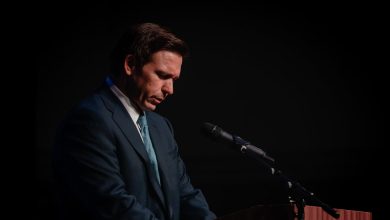Help Wanted: Adjunct Professor, Must Have Doctorate. Salary: $0.

The job posting for an assistant adjunct professor at the University of California, Los Angeles, set high expectations for candidates: A Ph.D. in chemistry or biochemistry, a strong teaching record at the college level, and three to five letters of recommendation.
But there was a catch: The job would be on a “without salary basis,” as the posting phrased it. Just to be clear, it hammered home the point: “Applicants must understand there will be no compensation for this position.”
The posting last month caused an immediate uproar among academics across the country, who accused the university of exploiting already undervalued adjunct professors, and suggested this would never happen in other occupations. Under pressure, U.C.L.A. apologized and withdrew the posting.
But the unspoken secret had been fleetingly exposed: Free labor is a fact of academic life.
“These arrangements are common in academia,” Bill Kisliuk, a spokesman for U.C.L.A., told Inside Higher Ed when at first defending the job posting.
Contingent faculty, the umbrella term for all kinds of generally part-time and untenured college teachers without much if any job security, make up a huge portion of the teaching staff of universities — by some estimates, around 70 percent overall and more in community colleges.
They have long complained about the long hours and low pay. But these unpaid arrangements are perhaps the most concrete example of the unequal power in a weak labor market — in which hundreds of candidates might apply for one position. Institutions are able to persuade or cajole people who have invested at least five or six years in earning a Ph.D. to work for free, even though, academics said, these jobs rarely lead to a tenure-track position.
“If your theory is that association with U.C.L.A. is itself compensation, then it makes sense,” said Trent McDonald, a Ph.D. candidate in English and American literature and union organizer at Washington University in St. Louis. “I think there is the belief that you can eat prestige.”
Very often, adjuncts and other contingent faculty are asked to do unpaid work that is presented not as free labor but as a way to hone their own credentials, according to union activists and some instructors who have received such requests. It may be characterized as professional development or service. Professionals are sometimes willing to teach a class in their field for free so they can put the university affiliation on their business cards, said Joe T. Berry, a former adjunct and historian of contingent faculty.
And the instructors who are pressed into teaching without job security are often women or minorities, who began entering academia in force as the system was shifting to contingent faculty, said Dr. Berry, who recently co-wrote a book on the subject called “Power Despite Precarity.”
In a previous book, Dr. Berry said, he has a page listing all the terms that have been used for contingent faculty: One of them is “uncompensated.”
The union representing contingent faculty at the University of California has been fighting the uncompensated positions for years, said Mia McIver, the president of the union, which represents about 7,000 members. “The fact that it is common does not excuse it,” she said.
The union suspects that the number of uncompensated teachers at the university is increasing, said Dr. McIver, who is also a lecturer in the U.C.L.A writing program. “As of March 2019, we had identified 26 faculty members at U.C.L.A. alone,” she said.
In the California system, the trend seemed to have begun with the financial crisis of 2008, Dr. McIver said. By 2010, she said, “We became aware of people who had been laid off and who were teaching for free in the hopes, without any commitment from the university, that if the work came back they would be hired back to teach for pay.”
The union won a settlement with the administration in 2016 requiring compensation for lecturers, who are mostly part-time and make up a majority of contingent faculty, Dr. McIver said. But while lecturers are now unionized, adjuncts are not, allowing the university to have adjunct positions known as “zero percent appointments,” meaning that they are unpaid.
A spokesman for U.C.L.A., Steve Ritea, said that before the settlement, the people who taught for free were often full-time professionals with other income. He said he could not comment on the number of zero percent appointments without seeing the documents the union was relying on. But he said that a typical example of a zero percent adjunct is a tenured professor at another institution who has a formal affiliation with U.C.L.A. that might include mentoring students or serving on committees. Or someone who has moved to another university but wants to finish out a grant or a project.
The job posting “regrettably contained errors and a lack of context,” he said, adding, “We always offer compensation for classroom teaching.”
Even if someone takes a zero percent position willingly, the union sees it as a disincentive for the university to create more secure positions.
“From my perspective it doesn’t matter whether someone had another job or another position, or is a retired professor who wanted to come back and teach, or a refugee scholar who needed a position, or a postdoc doing research who wanted or needed to teach,” Dr. McIver said, rattling off possible justifications. “Ultimately, all of that doesn’t matter because anyone who teaches at a university or any school, let alone the University of California, should be paid for their labor.”
Liza Loza, a graduate student in molecular microbiology and microbial pathogenesis at Washington University, was excited to be asked to teach a discussion section about four years ago. She had to do a lot of preparation, spending hours reading very dense scientific papers and anticipating students’ questions.
But she saw the job as her chance to make those discussions more hospitable to women and other students who had been shut out of the hard sciences. She remembered her own experience having professors who were so intimidating that she was afraid to speak, and she wanted to set a counterexample.
She was told that the job was unpaid because it was a professional development opportunity. She says the experience was valuable. “I did get a lot out of it on my C.V., but also personally, as something that I wanted to help make better about the program,” she said.
Then last semester, in her third year of teaching the section, she found out by accident that graduate students in other departments were being paid $1,000 for the same work.
“That was for me a bright line,” she said. “It just seemed sort of straightforwardly unfair once I figured that out.”
She wonders if she was lulled into working for free by the culture of academia, which drills into everyone that they are lucky to be there. “It is a privilege,” she said.
A spokeswoman for Washington University, Joni Westerhouse, said graduate students in Ms. Loza’s department were required to have one “mentored teaching experience,” for which they were paid through their stipend. She said they were not considered contingent faculty.
Ms. Loza said she continued to teach beyond the requirement, and was not compensated for it, while others were.
In an indication of how widespread the practice of free teaching may be, the Twitter posts reacting to the U.C.L.A. job posting included one from Caitlin DeAngelis, a historian. In 2018, while being paid to work as a research associate on a project about the historical connections between Harvard and slavery, she said that she voluntarily taught a course, called “Harvard and Slavery,” normally taught by a tenured professor. She did so because she cared so deeply about the subject.
“The course was an extra responsibility added on (as a lectureship in the history department) that did not come with additional pay,” she said in a text message.
On Twitter, she expressed some regrets about agreeing to teach without salary. “In retrospect,” she wrote, “I shouldn’t have done it for $0.00, but I wanted to get the info out to students.”
Harvard confirmed that Dr. DeAngelis had an unpaid lectureship in the fall of 2018.
Linn Cary Mehta is a longtime lecturer at Barnard and says she has seen a devaluation, even though adjuncts often have similar credentials to tenured professors. “When I first started we were called instructor and then lecturer,” she said. “The title changed to adjunct instructor, adjunct lecturer, almost aggressively, as if trying to put us in our place.”
Dr. Mehta, who has a Ph.D. in comparative literature from Columbia, has spent a career as a part-time worker because she needed the flexibility to care for her husband. She said that unionization at Barnard had provided increased job security through multiyear contracts, and higher salaries per course.
Of the U.C.L.A. job posting, she said, “It’s insulting.”
Alain Delaquérière and Kirsten Noyes contributed research.





